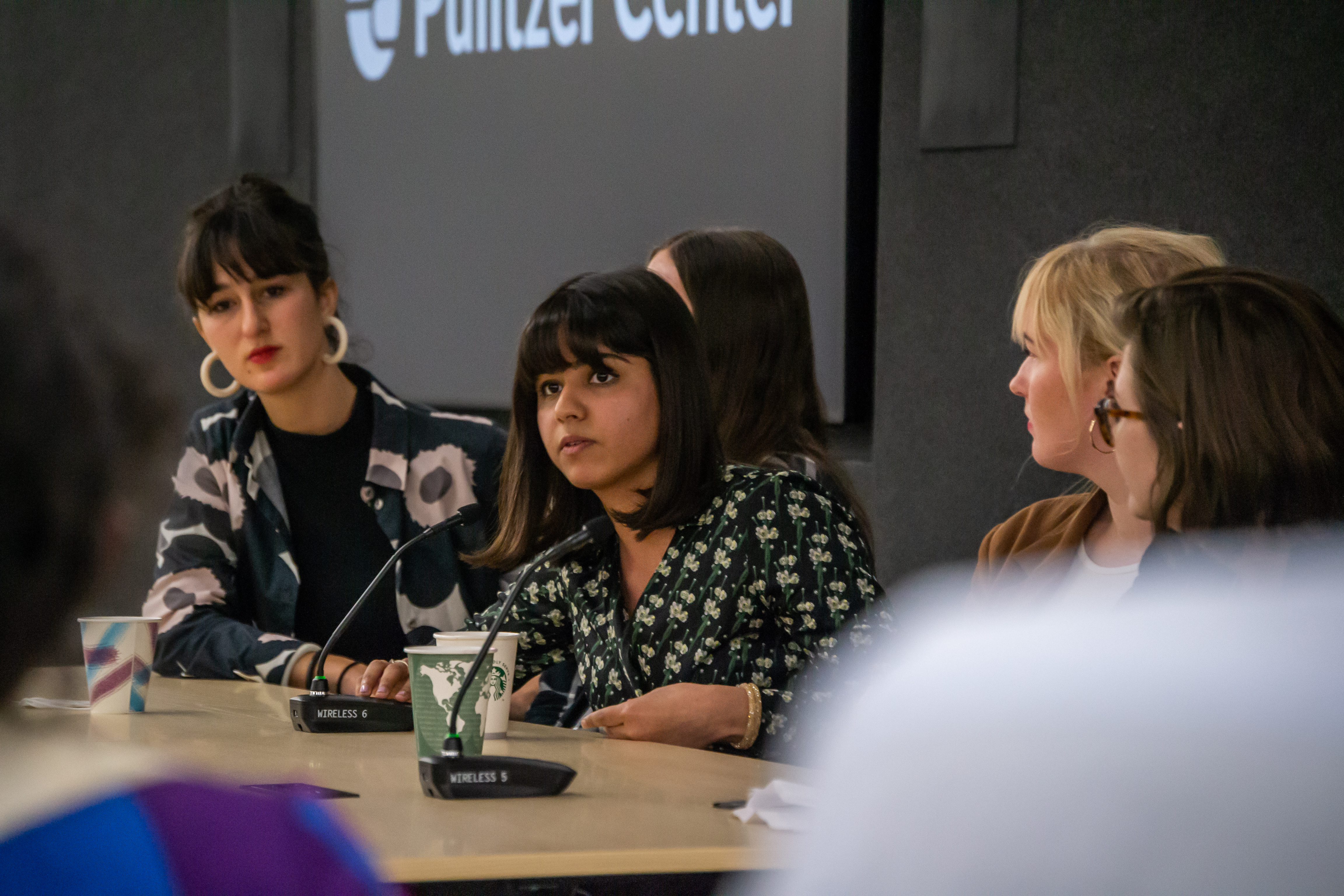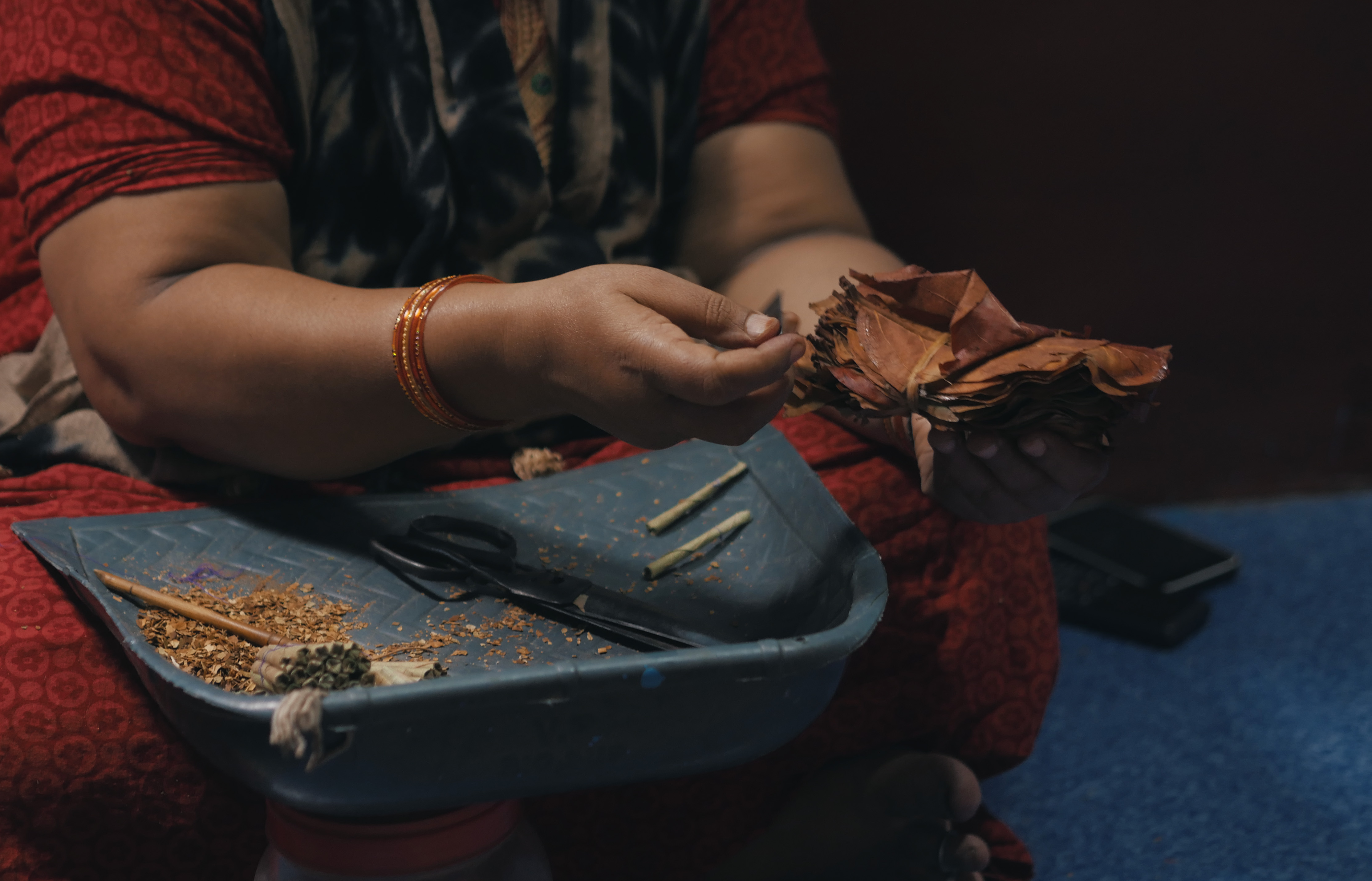
Boston University's School of Public Health interviewed Pallavi Puri about her experience reporting on India's beedi industry as a Pulitzer Center Reporting Fellow. The unregulated hand-rolled cigarette—beedi industry—employs mostly Indian women and children, directly impacting their health and livelihoods.
"Beedi workers work long hours for very little money. The women are exposed to tobacco dust, they don't use gloves, and many of them work from home with children on their lap," said Puri. "I wanted to understand how their health and livelihood are affected by this hazardous industry."
Puri recently spoke about her reporting during the global health session at Washington Weekend, which was highlighted in the BU article. "The Pulitzer Fellowship has been a great platform through which I have been able to bridge the gap between storytelling and research," said Puri. "During this fellowship, you'll make important connections and also get exposed to the diversity the fellows bring in terms of the issues and their storytelling approach."
Puri explained that enrolling in BU's Program for Global Health Storytelling course has also been instrumental in translating her academic expertise in public health into powerful storytelling. "The Global Health Storytelling class does not just make you feel the emotions of thousands of people, but also helps translate those emotions for the public," says Puri.
The course coupled with her Reporting Fellowship has left Puri with the tools to bridge the gap between public health research and storytelling that makes an impact. "Public health is not only about the numbers," says Puri, "it's about the people who make those numbers."
To read the full story, please visit the Boston University website.










